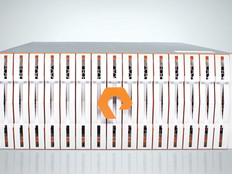Pros and Cons of Public, Private and Hybrid Clouds
A public cloud refers to a service that offers applications and IT functions to a general customer base with very few opportunities for individualization. However, higher education officials often define a public cloud as one that is hosted off premises by a third-party provider, but is protected in the sense that it is governed by a negotiated contract and includes customized pricing, service and security levels, as well as a strategy for data return should the arrangement end.
- PROS: No capital investment; access to economies of scale and specialized knowledge; predictable, pay-as-you-go costs
- CONS: Loss of control over institutional data; less ability to customize and prioritize how resources are managed
- POPULAR USES: Student e-mail, storage, standard productivity software, non-core business applications
A private cloud is created for and used expressly by an individual college or university.
- PROS: Control of data location, resource provisioning, security, service levels and compliance measures; improved flexibility and remote access
- CONS: Resource-intensive and expensive; requires specialized IT expertise
- POPULAR USES: Faculty and staff e-mail, enterprise resource planning (ERP), human resources and finance systems, learning management systems (LMS), classroom applications
A hybrid cloud within higher education typically comes in two flavors. The first is a cloud run by a consortium or a higher education–focused provider for use only by a group of academic institutions. The second is an arrangement in which the underlying infrastructure, or all or part of the application, is hosted offsite by a public cloud provider, but more sensitive components (and sometimes the application itself) are maintained within a private cloud by the higher education institution.
- PROS: Speed to market; access to specialized application knowledge and high-capacity IT resources
- CONS: Loss of control
- POPULAR USES: ERP, LMS, high-performance computing, massive data storage and management







